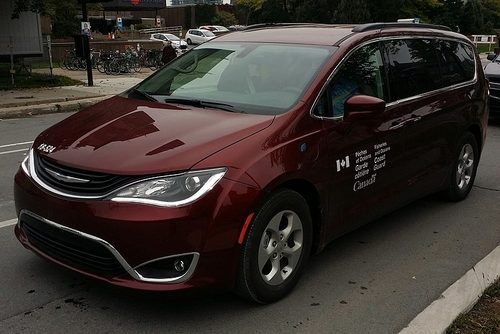Chrysler Pacifica Lemon Law – Hybrid System Recall
Fiat Chrysler Automobiles (FCA) is recalling approximately 10,000 hybrid vehicles containing engines that improperly restart.
The Auburn Hills, Michigan-based manufacturer notified the National Highway Traffic Safety Administration (NHTSA) on Oct. 19, 2018 they will recall 10,021 2017-2018 Chrysler Pacifica vans built between Aug. 16, 2016 and Aug. 7, 2018.
The affected vehicles contain gas-fuel engines that, after a long period of electrically-powered propulsion, can re-activate out of synchronization. This can let the electric motor continue spinning the engine and inject significant amounts of unburned fuel into the catalyst. This can cause power loss and increase crash risk, as well as create a potential fire risk.
FCA’s recall chronology states their Vehicle Safety and Regulatory Compliance group opened its investigation on Oct. 3, 2018 following three reports of catalyst overheating in vehicles previously recalled for cruise control problems. Powertrain engineers determined the root cause and on Oct. 12, 2018, the company decided on a voluntary safety recall.
FCA will notify owners and dealers will update the powertrain controller module software, and inspect and replace the catalytic converter as necessary, free of charge. The recall is expected to begin December 8, 2018. Owners may contact Chrysler customer service at 1-800-853-1403. Chrysler’s number for this recall is U94. Owners can also visit the NHTSA’s website and enter their VIN to see if their vehicle is included in any recalls.
Your vehicle’s manufacturer is legally required to fix any recalled problems for free. If the dealership refuses to fix the part or tries to charge you for the repair, contact the manufacturer immediately. The Highway Safety Act of 1970, which created the NHTSA, requires car manufacturers to pay for the recall and replacement of a defective part.
If the manufacturer fails to repair, replace, repurchase, or provide your recalled vehicle’s loss value, they are violating the warranty and a lawyer may be able to help you. Lemon law attorneys help their clients by dealing directly with the manufacturer on the clients’ behalf, working to promptly resolve the issue and get their clients back on the road. Thanks to the Magnuson-Moss Warranty Act, attorneys can seek their fees directly from the manufacturer, meaning a client can obtain legal counsel without having to pay attorneys’ fees directly out of pocket.
LemonLawUSA.org is sponsored by Lemon Law Lawyers Allen Stewart P.C.

